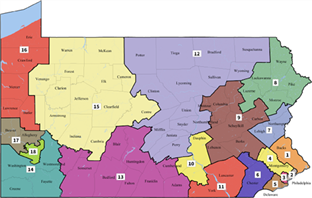Author: Joel Ready
-
Com v. Crispell: PCRA Petitions may be amended to add new claims, even if the new claims fall outside of the “one year” rule
Written by
on
In an otherwise mundane PCRA affirmance, the Supreme Court of Pennsylvania ruled unanimously that a PCRA petitioner may move to amend his petition to add an additional claim, even if…
-
Com v. Wilmer: Community Caretaking exception to warrant requirement lasts until officer is done rendering assistance
Written by
on
A party at a sorority house led to a drunk college kid on the roof of the house, stumbling about, looking as though he were about to fall off the…
-
Danganan v. Guardian Protective Services: UTPCPL violation need not be in Pennsylvania
Written by
on
The Pennsylvania Supreme Court ruled unanimously in Danganan v. Guardian Protective Services that a violation of the Unfair Trade Practices Consumer Protection Law need not have occurred in Pennsylvania to…
-
Com v. Fulton: Warrantless Cell Phone searches violate both Constitutions
Written by
on
In a relatively-unsurprising re-affirmation of recent SCOTUS caselaw, the Supreme Court of Pennsylvania ruled 6-0 in Commonwealth v. Fulton that a warrantless search of a cell phone is unconstitutional and…
-
Federal Block to Gerrymandering Roundup 2-26-18
Written by
on
The fight over SCOPA’s gerrymandering decision continues. SCOTUS denied cert from the first decision, but now the issuance of the map is being challenged. Lyle Denniston of SCOTUSblog fame discusses…
-

League of Women Voters v. Commonwealth: The “Free and Equal Elections” Clause Prohibits Gerrymandering
Written by
on
EDIT: The map has been released as promised by the Court, along with a brief opinion on February 19, re-outlining the views of the Court. We have included it here…
-
Com v. Yong: Collective Knowledge Doctrine Affirmed
Written by
on
When two police officers independently have the information necessary to constitute probable cause, but they have not communicated these facts to each other, is the arrest of the defendant constitutional?…
-
Com v. DiMatteo: PCRA petitioner entitled to new sentence where SCOTUS change occurred before his sentence was final
Written by
on
Commonwealth v. DiMatteo resolves an obscure overlap in sentencing rules in Pennsylvania, confirming that a Defendant is entitled to resentencing where he was not sentenced on his open plea before…
-
Shearer v. Hafer: Interlocutory Appeal unavailable for civil pretrial dispute over right to counsel at psychological examination
Written by
on
In Shearer v. Hafer, the Supreme Court of Pennsylvania rules 6-1 that an interlocutory appeal was not appropriate in a pretrial discovery dispute over whether a plaintiff has the right…
-
Com v. VanDivner: Three Part Miller Test Establishes Sanity for Death Penalty
Written by
on
The Supreme Court of Pennsylvania ruled 6-0 in Commonwealth v. VanDivner that a defendant whose intellectual impairments interfere with his ability to cognitively adapt is mentally incompetent as regards the…
